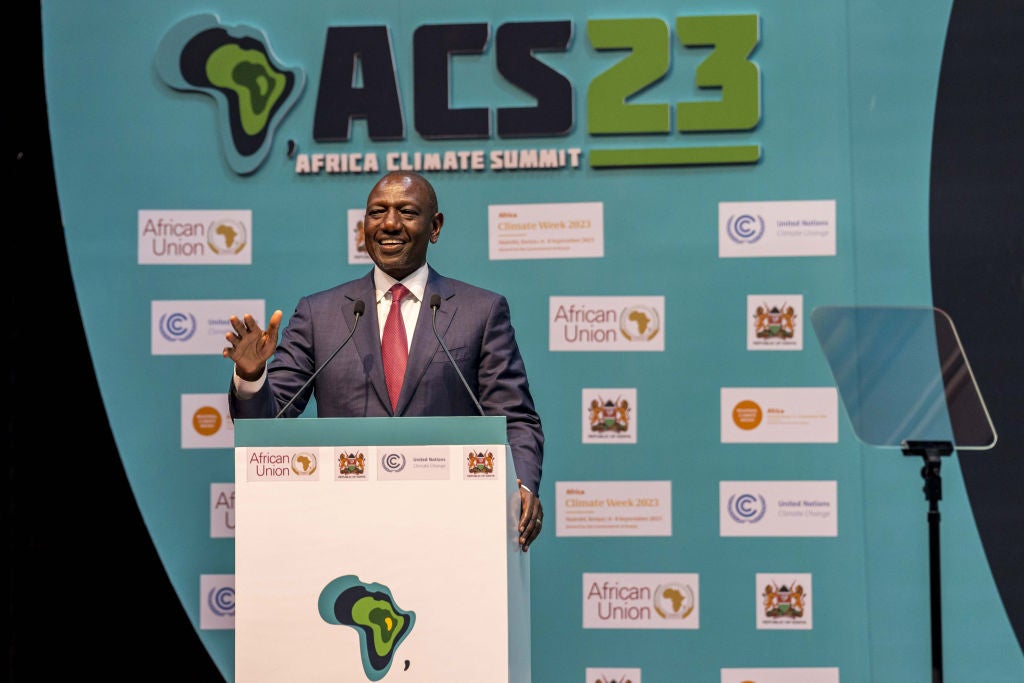
NAIROBI – Africa’s first climate summit wrapped up last week (6 September) with the release of the Nairobi Declaration, the first time all African leaders have reached a joint position on the question of climate change and climate policy.
The declaration calls for the global financial system to be reformed, noting that the cost of borrowing in Africa is significantly higher (around eight-times higher than in Europe), and calls for the long-promised pledge of $100bn a year in climate finance for the developing world to finally be met.
It also calls for new industrial opportunities to process raw materials within the continent (unprocessed minerals currently account for 70% of total African exports), and for Africa’s renewable energy generation capacity to increase from 56GW in 2022 to at least 300GW by 2030.
However, clean energy investment data from GlobalData, Energy Monitor’s parent company, reveals a current state of play in renewables in Africa that is a far cry from these broad ambitions.
Investment in renewable energy across the ten African economies tracked in the database has remained stagnant at around $5bn each year since 2014.
Globally, annual investment in renewables has increased by 60%, when the figure for 2014 is compared with that of 2022, but in African nations investment has actually fallen by 12% over the same period.

US Tariffs are shifting - will you react or anticipate?
Don’t let policy changes catch you off guard. Stay proactive with real-time data and expert analysis.
By GlobalDataAn array of financial pledges made by visiting leaders and dignitaries at the Africa Climate Summit – totalling $23bn – constitute some progress in addressing this dismal clean energy investment landscape.
Pledges included a $4.5bn (Dh16.53bn) commitment from the United Arab Emirates to boost renewable energy in Africa; a new $60m partnership to expand grid access in rural Burundi; a $30m pledge from the US to accelerate food security efforts across the continent; and €12m ($12.8m) in grants from the EU to support Kenya’s green hydrogen strategy.
However, experts familiar with Africa’s development requirements remain unimpressed.
“The $23bn figure is a drop in the bucket compared to what Africa actually needs,” says Lily Odarno, a director at the non-profit Clean Air Task Force. “The Africa Development Bank has estimated that we need $2.7trn in extra finance for the continent to meet its Sustainable Development Goals, which is a far cry from what we see here.”




